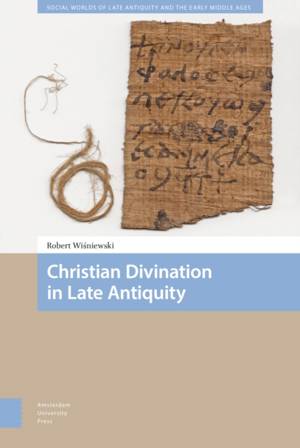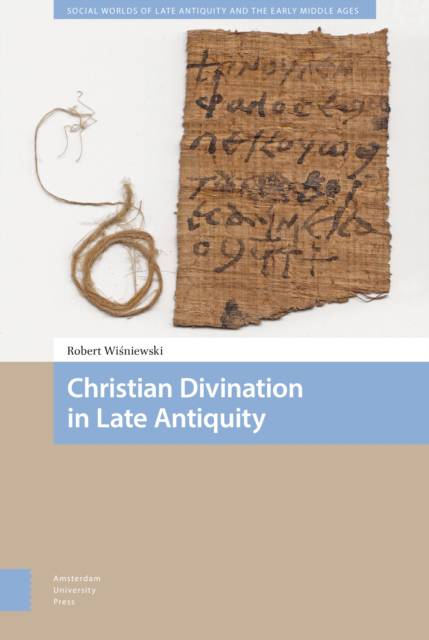
- Afhalen na 1 uur in een winkel met voorraad
- Gratis thuislevering in België vanaf € 30
- Ruim aanbod met 7 miljoen producten
- Afhalen na 1 uur in een winkel met voorraad
- Gratis thuislevering in België vanaf € 30
- Ruim aanbod met 7 miljoen producten
Zoeken
Omschrijving
In Late Antiquity, people commonly sought to acquire hidden knowledge about the past, the present, and the future, using a variety of methods. While Christians acknowledged that these methods could work effectively, in theory they were not allowed to make use of them. In practice, they behaved in diverse ways. Some probably renounced any hope of learning about the future. Others resorted to old practices regardless of the consequences. A third option was to construct divinatory methods that were effective yet religiously tolerable. This book is devoted to the study of such practices and their practitioners, and provides answers to essential questions concerning Christian divination. How did it develop? How closely were Christian methods related to older, traditional practices? Who used them and in which situations? Who offered oracular services? And how were they perceived by clerics, intellectuals, and common people?
Specificaties
Betrokkenen
- Auteur(s):
- Uitgeverij:
Inhoud
- Aantal bladzijden:
- 288
- Taal:
- Engels
- Reeks:
Eigenschappen
- Productcode (EAN):
- 9789462988705
- Verschijningsdatum:
- 16/11/2020
- Uitvoering:
- Hardcover
- Formaat:
- Genaaid
- Afmetingen:
- 156 mm x 235 mm

Alleen bij Standaard Boekhandel
+ 337 punten op je klantenkaart van Standaard Boekhandel
Beoordelingen
We publiceren alleen reviews die voldoen aan de voorwaarden voor reviews. Bekijk onze voorwaarden voor reviews.











